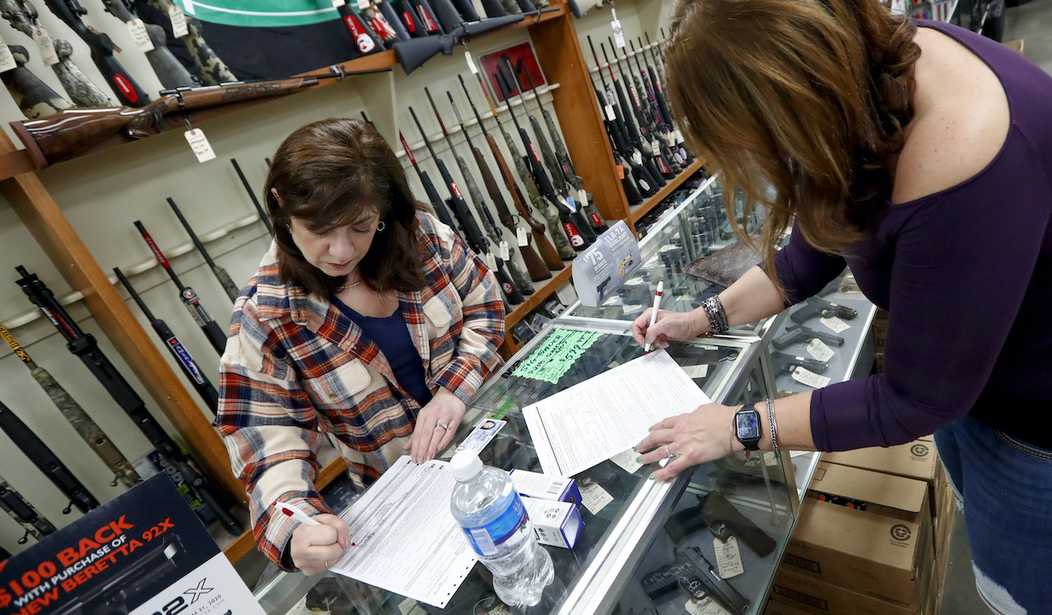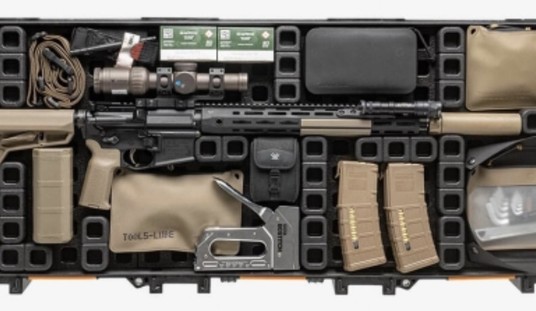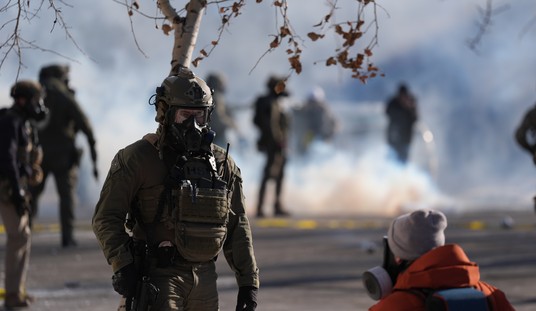It’s been a little over a year since the New York Times published its report on how mass shooters use credit cards to purchase firearms. In the wake of numerous mass shootings, gun control activists have been looking for new ways to crack down on firearm sales. Frustrated by the lengthy legislative process and recent setbacks at the Supreme Court, one of their latest strategies is to push for the creation of a new merchant category for firearms retailers and to pressure credit card companies to use it to classify firearms-related purchases. But what is the end game for gun control activists? Is it to create a private gun registry or to flag suspicious purchases? There’s more to this story and the impacts on law-abiding gun owners might be felt sooner than anyone realizes.
Last Friday, Reuters reported, that an international standards body has approved the creation of a merchant code for gun retailers, following pressure from activists who say it will help track suspicious weapons purchases. At a meeting this week, a subcommittee of the International Organization for Standardization approved what is known as a “merchant category code” for firearms stores, a spokeswoman said. The approval of the new category code clears the way for banks that process gun retailers’ payments to decide whether to assign the new code to merchants. The codes were requested of the Swiss body known as ISO by Amalgamated Bank of New York, which calls itself a socially responsible lender and investor.
The conventional wisdom is that these gun control advocates are creating a kind of private surveillance system and registry of gun-related purchases in the United States, with credit card processors, using the new merchant code to watch for “suspicious” purchases and report their customers to authorities for further investigation.
There are a few potential problems with this line of reasoning. First, it is unclear what exactly would constitute a “suspicious” purchase. Even gun control activists cannot define how they believe this will work. Second, even if credit card companies were able to identify suspicious purchases or buying patterns, it’s not clear that they would be legally obligated to report them. Third, as reported by Cam Edwards in an interview with Mark Oliva of the National Shooting Sports Foundation (NSSF), the new merchant code will not give credit card companies the ability to look into the specific items purchased, like a firearm or ammunition, which calls into question the rationale for and utility of the new merchant code.
And while developing a private registry and reporting suspicious purchases may be the currently acknowledged aims of this move to re-categorize firearms merchants, it is not likely the only objective of gun control activists.
In a statement, Amalgamated Chief Executive Priscilla Sims Brown said, “we all have to do our part to stop gun violence.” Without explaining how Ms. Brown stated the new merchant code will allow financial institutions to “fully comply with their duty to report suspicious activity and illegal gun sales to authorities”. The statement continues, “Amalgamated Bank’s decision to advocate for the creation of the new merchant category code is the result of nearly three years of research and partnership with issue experts at Guns Down America and Giffords Law Center and broad support from elected officials, pension funds, and others across the United States.” Certainly, this represents an interesting amalgamation of interest groups (pun intended).
This move to create a specific merchant code for firearms retailers has been underway for several years. Similar actions by Amalgamated failed last year. So what changed? Well, for one thing, anti-gun politicians and activists learned the lessons of using the private sector to do what government is not able to do directly. During the COVID-19 pandemic, government agencies turned to social media companies to enforce what amounted to censorship of anything they deemed to be disinformation. And many in the private sector were more than happy to comply.
By enlisting the private sector to do what the government can’t, gun control activists hope to achieve more than flagging suspicious purchases or building a private gun registry. First, they want to make purchasing a firearm more difficult. By attacking credit card purchases, they hope to force purchases to an all-cash basis which they believe will delay consumer purchases and systematically hurt small firearms retailers who depend on credit card purchases for as much as 80% of their business–forcing many to close their doors. Second, and this is their primary aim–convince activist investors and funds, steeped in environmental, social, and governance (ESG) to pressure banks, credit card processors, and the credit card networks themselves to stop doing business with firearms retailers. What ESG offers gun control activists and their allies in government is a golden opportunity to drive their social policy objectives–bypassing much of the public policy debate that would accompany legislation or regulatory action.
Just this past year, activist investors have pushed more than one firearms manufacturer to adopt a “human rights policy” and to “study the safety of its products”. After the tragedy at Marjory Stoneman Douglas High School in 2018, investment firm BlackRock issued a statement indicating their belief that “this event requires response and action from a wide range of entities across both the public and private sectors,” that long-term success requires “understanding the societal impact of your business” and that they intend to “monitor these and other companies to assess their policies and practices in light of evolving societal expectations.”
Buried in the Reuters reporting was the following statement. “Several top U.S. pension funds had submitted shareholder resolutions asking payments companies to weigh in on the issue.” And it isn’t just U.S. pension funds getting in on the act.
Activists shareholders have been pressuring corporate executives to follow their ESG goals for years and are now armed with a distinct merchant code for firearms retailers, they have the means to single out these retailers and to pressure the financial industry to radically alter the terms of their relationship or to stop doing business with them altogether. Expect these pressure campaigns to begin in short order.







Join the conversation as a VIP Member